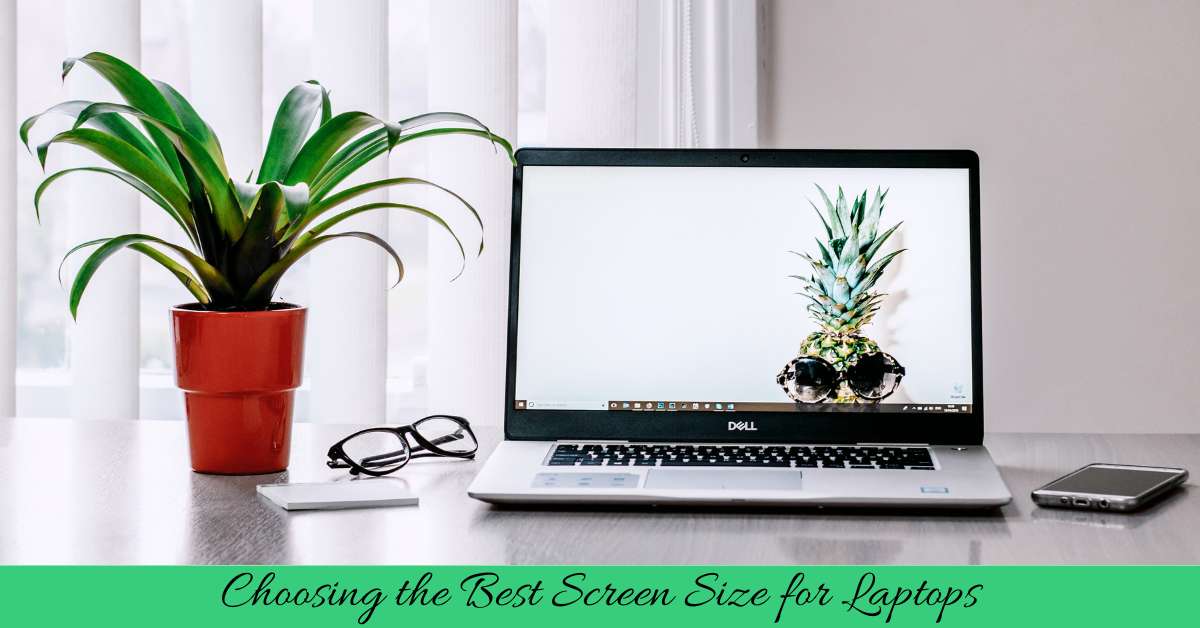
Are you in the market for a new laptop but not sure of the screen size you need? Like, processor, SSD, and RAM, the screen size for laptops is also one of the crucial buying considerations. From small 11-inch displays to large 17-inch screens, it may be confusing to decide which one is right for you.
In this blog post, we will delve into the world of laptops and screen sizes so that you can make an informed decision on which one suits your needs best. From considering your usage habits to understanding technical specs, by the end of this post, you’ll have all the information necessary to confidently choose the perfect screen size for your next laptop purchase.
Pros and Cons of Different Screen Size for Laptops
Let’s start by weighing the advantages and disadvantages of different screen sizes.
Small screen sizes (≤14″) offer unparalleled portability, making them ideal for those on the go. However, they come with limited workspace, which may hinder multitasking and require more scrolling.
Medium screen sizes (14″–15.6″) strike a balance between portability and productivity. They provide a comfortable viewing experience without sacrificing too much portability.
Large screen sizes (17.3″) offer enhanced productivity by providing ample screen real estate for multitasking and content creation. However, they tend to be less portable, which might not be ideal for frequent travelers.
Impact of Screen Size on Productivity and Portability
Now, let’s explore how screen size can influence your requirements. When it comes to multitasking and workflow, a screen size of 15.6 ” or more allows for more windows and applications to be open simultaneously, making it easier to manage complex tasks.
On the other hand, 11.6″ smaller screens may require more window-shuffling and can be limiting for certain tasks like content creation or data analysis.
Also, there is a direct relationship between screen size and battery life. Larger screens tend to consume more power, resulting in shorter battery life.
Portability is a crucial consideration for many laptop users. If you’re constantly on the move or need a laptop for travel, a smaller screen size will be your best friend. It’s lightweight and easy to carry around.
Best Screen Size for Laptops for Different User
Let’s dive into specific user types and their recommended screen sizes:
- Students: For studying and note-taking, a 13-14″ screen is sufficient. It strikes a balance between portability and readability.
- Gamers: To truly immerse yourself in the gaming experience, a larger screen size above 15″ is recommended. It enhances visuals and brings games to life.
- Programmers and Designers: When it comes to coding and designing, having a medium or larger screen can make a significant difference. It allows for better visibility of code and smoother workflow.
- General laptop buyers: If you’re an everyday laptop user, it ultimately comes down to personal preference and specific needs. Consider factors like the type of tasks you’ll be performing and the level of portability you require.
Laptop Screen Size Vs Screen Resolution
It’s also worth mentioning that screen size is not the only factor to consider when choosing a laptop. Screen resolution, which refers to the number of pixels on a screen, can also impact your viewing experience. A higher resolution means more pixels, resulting in sharper and clearer images. However, a higher resolution may also require a larger screen to fully appreciate the difference. It’s all about finding the right balance between screen size and resolution for your specific needs. So, consider both factors when making your decision.
Overall, when considering screen size for laptops, it’s important to think about your specific needs and preferences. Whether you prioritize portability or enhanced visuals, there’s a screen size that will suit your lifestyle. Remember to also consider other factors like battery life, and budget for a well-rounded decision.
Related Topic:


